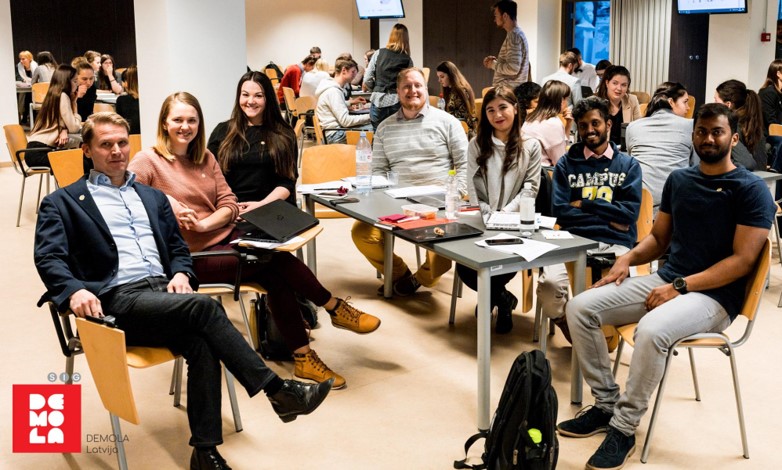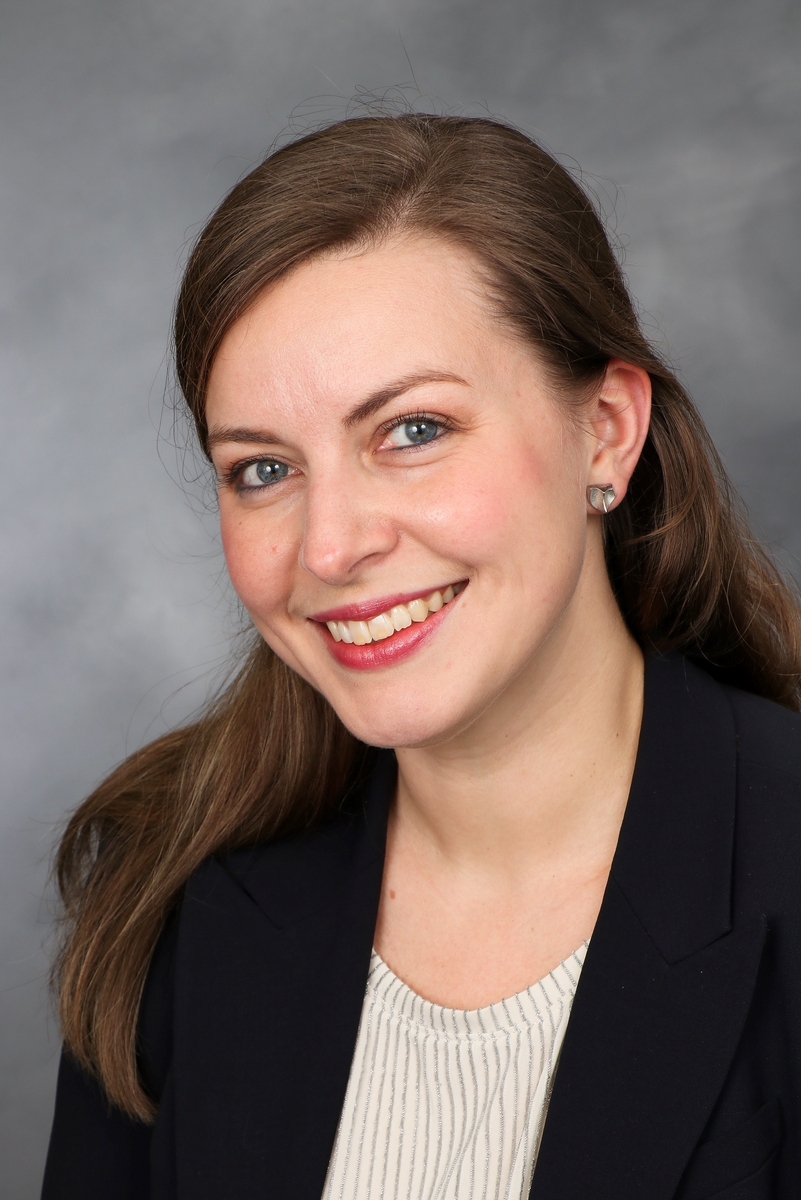June 23, 2020
DIMECC has been working on a Fit-for-Baltics Innovation Study that has been implemented as part of the DIGINNO project. In this study, student teams from Latvia, Lithuania, and Estonia were working on how to modify the DIMECC Demobooster innovation concept so that it could best fit the needs of the respective countries. Therefore, the students had to analyze things such as the local business culture and industry, business models, and possible operators of the concept. Students had weekly meetups with facilitation provided by Demola and guidance from DIMECC. Local operators and DIGINNO partners such as ITL (Estonia) and LINPRA (Lithuania) also took part in some online meetings, in order to provide a deeper insight to the local business culture and industry. The aim of the student projects was to come up with a concept in each country that can be piloted in the fall of 2020 as part of the DIGINNO project, with the ultimate goal of speeding up digitalization through innovation practices.
Student experiences
From the student perspective, the challenge was hard work, but also rewarding. In addition to study credits, the students gained experience in solving real life problems, and they also managed to network with companies and organizations across borders. Below are some comments from the students and main facilitator Joonas Kemppainen (Demola).

Before the COVID-19 situation hit at full speed, team Latvia had a chance to meet in real life together with DIMECC representative Kari Muranen (left) and Demola facilitator Joonas Kemppainen (middle). Ance Abolina (second from left) and Farangiz Rakhimova (third from right) gained new leadership and team work skills in the project. The rest of the meetings and other student meetings were organized via Microsoft Teams and Zoom. Photo by Demola.
What was the biggest advantage of participating in this type of challenge?
“For me it was doing something I have never done before – research on different Latvian entities that do similar things and trying to understand what are pros and cons for introducing new solutions into a country. What should be evaluated, what is important and what can be amended for this to work” (Ance Abolina, Latvia student team)
“Ability to design new ideas, obtain new experience from a team work, receive related advice from professionals and learn cross-border cooperation and partnership.” (Gennadii Groshev, Estonia student team leader)
What was the most difficult part of the whole process?
“Many companies were not responding to our emails for a long period of time, so we had to change the plan. As well it was hard to work remotely with a team, that is quite strange to you. It is even harder that you don’t know them and now you don’t see them and need to work together.” (Ance Abolina, Latvia)
Is there something you would have done differently?
“Hard to tell, because I like our solution. Maybe I would have worked with the team slightly differently. To use more their superpowers.” (Ance Abolina, Latvia)
“If there wouldn’t be the pandemic situation, then we could connect companies not only through the emails or calls but having tête-à-tête conversations.” (Farangiz Rakhimova, Latvia student team leader)
What was the most important thing you learned from this project?
“Trust, definitely trusting teammates. Also going with the flow – sometimes, when you work on innovative solutions, you have to go step by step, even if you feel lost at one point, but you have keep on going, because the solution is near, even if you don’t see it yet.” (Ance Abolina, Latvia)
“Experience and knowledge of building new concept side by side with professional mentors.” (Gennadii, Estonia)
“It was my first experience of being a leader of the international team, so I gained new skills in leadership. And after the quarantine started, we all with the team learned how to work in online platforms (Slack, Miro, etc).” (Farangiz, Latvia team leader).
Demola – keeping the pieces together
Joonas Kemppainen, DEMOLA facilitator and main organizer of these three simultaneous student projects, has also gotten new experiences working with teams tackling the same challenge in various countries.
What would you say was the biggest challenge/benefit running simultaneous projects regarding the same challenge?
The biggest challenge in running simultaneous projects with same challenge in various countries was mental: How to maintain the big picture personally without contaminating the projects with each other’s thoughts. The potential in running such projects was definitely validated though, as the comprehensive knowledge increase on the phenomenon and context was substantially higher than expected. Multiple angles for approach and bright minds with very diverse backgrounds enabled surprising findings, validated concepts and massively inspiring experience!
How did the fact that this was executed as part of DIGINNO program affect your work?
Diginno created a natural curiosity in the countries the project was done in. Pre-existing contacts made the work in each country a lot easier and teams were able to receive feedback directly from people familiar with their own operating environment. The presence of Diginno also generated natural directions to continue with the results, so overall the execution as a part of the program was highly beneficial.
Other feedback or comments to stakeholders?
Of course the team members made it possible to succeed, hats off to each one of them along with my colleagues in each country who prepared and co-facilitated the projects! My warm, special thanks go to all stakeholders through Diginno, who showed great interest in the projects and took part in making the results more meaningful, raising the level of the whole experience to another level.
The DIMECC experience
For DIMECC, the process has been an educational journey in which different business cultures, student work and various innovative proposals have been explored. Crossborder co-operation was enhanced throughout the project as the nature of the challenge was to work together with the BSR countries in order to modify an existing innovation concept to local needs. The whole project was very fruitful as each team came up with different solutions, and some suggestions have even resulted in further negotiations with relevant parties. Below is a brief summary of the concepts that the students came up with:
Latvia:
Demobooster as part of the Latvian Chamber of Commerce service portfolio. Benefits include that there is a ready network of companies. Actual concept is quite similar, but last “Demoday”/Demo show is organized within company headquarters together with chamber of commerce in order to do some marketing activities.
Lithuania:
HackaBooster in which Demobooster is implemented as part of conferences and other events.
Demobooster on Demand: The challenges are presented in an online platform where there is also the possibility of an “exhibition center”, which will be organized monthly. Here companies can come together to discuss more freely.
Estonia:
Online platform for scalable operations. Idea is to produce a large amount of cycles per year. Also provides the opportunity of networking in the platform by offering exhibition days focused on current topics. Operated independently or as part of an organization.
Conclusions
Personally, this was a very exciting project for me as I recently finished my vocational teacher education studies. I enjoyed working with students from many different backgrounds and I felt like I learned a lot about different cultures, online working methods, and of course the proposed solutions. However, it was also a challenge for me to remember my role as a customer (DIMECC) and not as a teacher. Luckily, Demola was responsible for the facilitation and made sure that the students received appropriate guidance and that DIMECC was up to date on their progress. From the point of view of entrepreneurial education, I believe that these kind of student projects work very well to foster creativity, innovation, and positive attitude. Taking risks and learning from mistakes is also part of entrepreneurship and going through this process in a safe environment is good practice for future skills. As a whole, I think the students did a good job working in extremely challenging times due to the COVID-19 crisis. Not only was it more difficult to reach companies, but also the team work had to be organized completely online as well as weekly meetings with DIMECC. I hope that one day we get a chance to say “thank you” in person and although we haven’t actually met yet I still feel that we managed to get to know each other during this spring.
 |
Doris Pryjma Program Management Expert DIMECC Ltd. |
Read more: Demola Final Report – DIMECC


